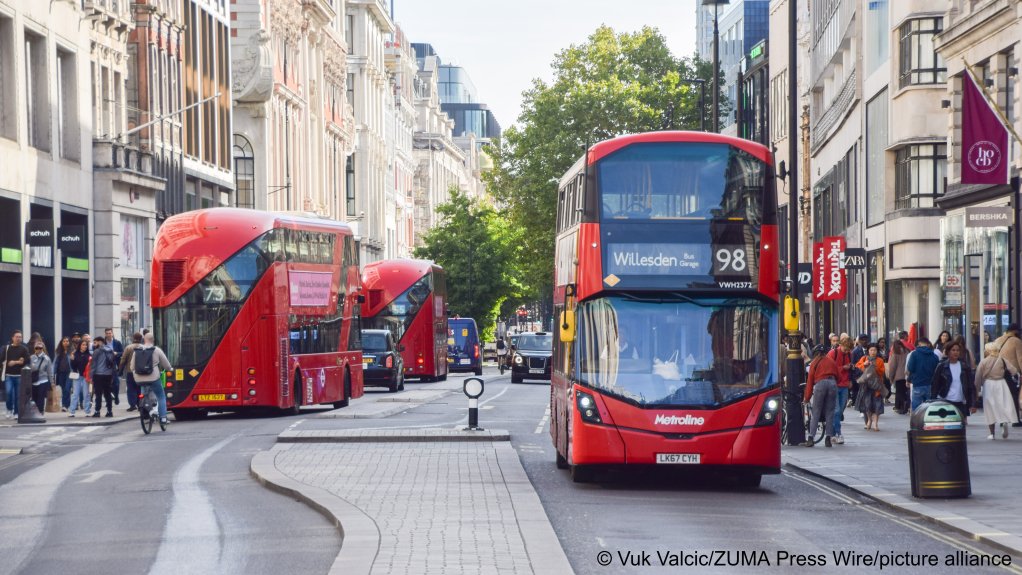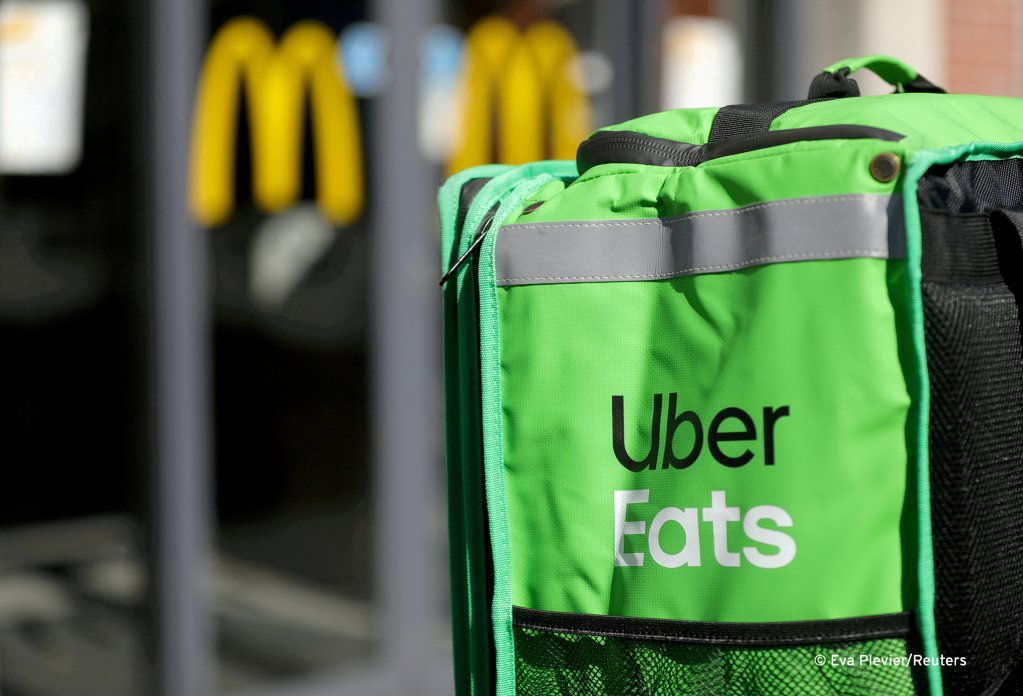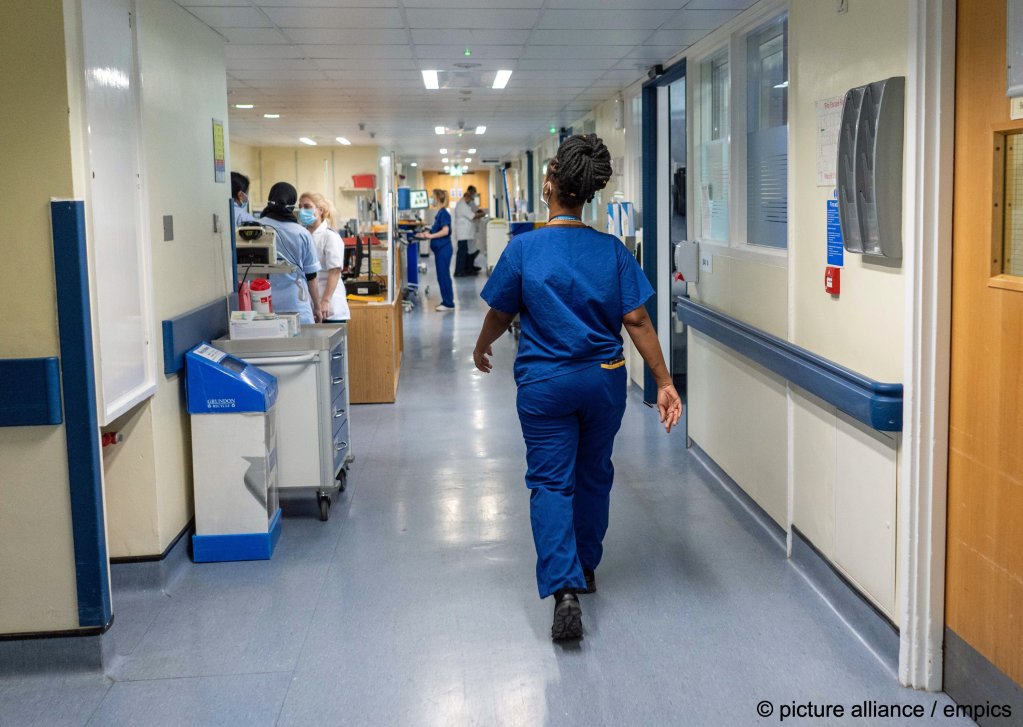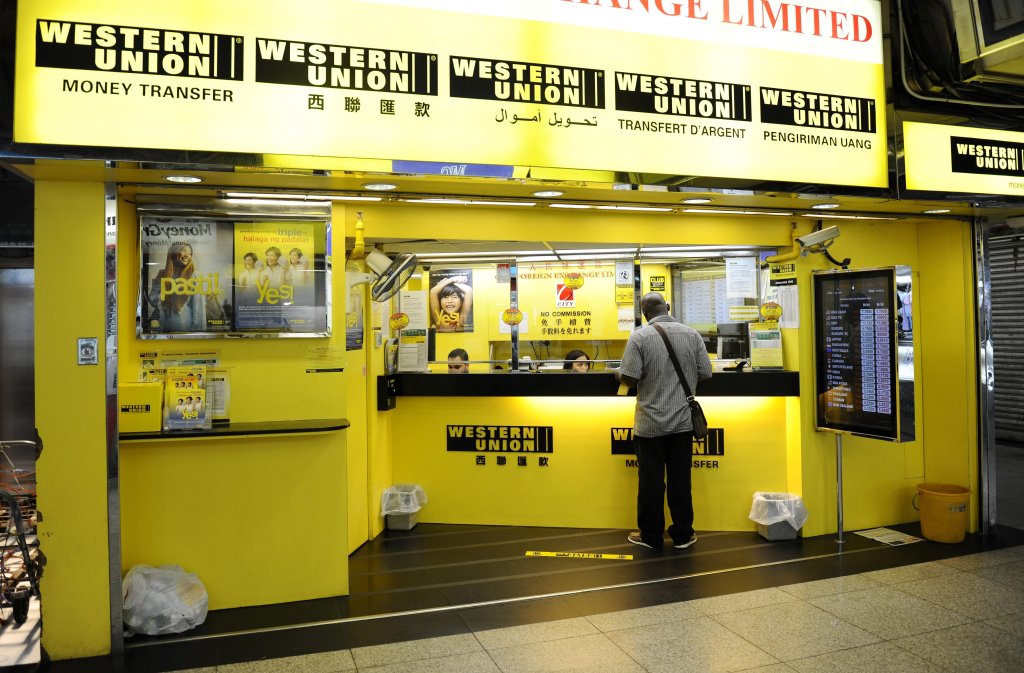The UK depends on migrant workers more than ever, but loopholes in its ID and labor systems still leave many at risk of exploitation.
The United Kingdom’s economy depends heavily on migrant labor. New data from the US-based remittance company Remitly shows that foreign-born workers make up a significant share of Britain’s transport, health, communication, and finance sectors, contributing billions of pounds to the country’s economy.
At the same time, a BBC investigation has revealed how other migrants -- often undocumented or waiting on asylum decisions -- are being drawn into illegal work and exploitation through criminal networks operating in the UK. The contrast highlights both sides of the country's migration story, i.e., an economy strengthened by international labor, but weakened by loopholes that allow exploitation to persist.
Read AlsoUK: Record high arrests for unauthorized migrant workers
A network of 'ghost' companies
Several small high-street businesses, including mini-marts and barbershops, were found to be using false or proxy company directors, according to the BBC.
The investigation found that some asylum seekers were offered the chance to manage shops informally by paying a monthly fee (around 300 pounds) to someone willing to list themselves as the official company director.
Financial crime expert Graham Barrow told the BBC the pattern -- that businesses that close and re-register with small variations in name or paperwork -- matches "classic phoenixing," where firms repeatedly shut down to avoid scrutiny or taxes.

According to HM Revenue & Customs (HMRC) figures reported by the Financial Times, abusive "phoenixing" activity was estimated to have cost the UK hundreds of millions of pounds in the tax year of 2022-23.
Since March 2024, Companies House, the UK’s corporate registry, has gained new powers to challenge suspicious information and share data with law enforcement. Beginning November 18, 2025, all company directors will be required to verify their identities through a government portal, part of wider efforts to curb shell firms and financial crime.
Read AlsoAsylum seekers in the UK scapegoated amid economic precarity
Illicit retail profits and weak penalties
Some shops in the BBC’s investigation were said to make several thousand pounds weekly from illicit tobacco and vape sales.
According to HMRC’s 2025 Measuring Tax Gaps report, the tobacco duty gap was 13.8 percent of the expected tax liability in 2023-24, representing a significant loss to public revenue.
Trading Standards and HMRC’s joint Operation CeCe seized more than 1.36 billion cigarettes in 2023-24, while National Trading Standards confiscated over 1.19 million illegal vapes under Operation Joseph.
Yet fines for illegal tobacco sales can be as low as 200 pounds -- far below the profits involved. Investigators say the low risks and high rewards make small high-street shops ideal fronts for cash-based criminal activity.
Read AlsoUK: More migrant smugglers on trial
Migrants working in legal limbo
Many of the shop workers interviewed by the BBC were asylum seekers or undocumented migrants earning as little as 4 pounds an hour for shifts up to 14 hours long.
The Gangmasters and Labor Abuse Authority (GLAA) says small retail and service businesses are increasingly at risk of exploitation.
In its 2024-25 assessment, the GLAA cited the car wash, construction, and convenience retail sectors as key sites of labor abuse involving irregular workers.

A 2024 inspection by the Independent Chief Inspector of Borders and Immigration (ICIBI) found that enforcement operations against illegal working rarely result in employer prosecutions, focusing mostly on detaining workers.
While the Home Office has stepped up inspections, data on recent detentions linked to illegal working has not yet been publicly released for verification.
Asylum seekers in Britain generally cannot work while their claims are processed and receive around 49 pounds a week in government support. This leaves many reliant on informal jobs to survive. "Honestly, we’re all struggling here and don’t know what to do," one Kurdish worker told the BBC.
Read AlsoUK: Crackdown on unauthorized gig workers
A broader reliance on migrant labor
The UK’s migrant workforce continues to grow and is vital to the country’s economy. Remitly’s analysis of government labor data found that 27 percent of employees in transport and communication are foreign-born. In manufacturing, the number of non-EU-born workers has increased by 66 percent since 2018, while the number of workers from Poland, Lithuania, and Slovakia has fallen by 16 percent.
In the finance sector, Remitly estimated that migrant workers contribute 327 billion pounds annually to turnover.
The Migration Observatory at the University of Oxford reports that the health and care sector is the single largest employer of foreign-born workers, accounting for about 16 percent of all migrants in the UK. Over the past five years, the number of migrant health workers has risen by 116 percent, according to Remitly’s report. If that growth rate continues, there could be around 1.8 million migrant health and care workers by 2028 -- a projection based on current trends rather than an official forecast.
Read AlsoUK: Skilled labor migration to be severely curtailed under new plans
Safeguards for health and care workers
New government regulations introduced on April 9, 2025, require healthcare employers to prioritize hiring workers already in the UK and seeking new sponsorship before recruiting abroad. The reform aims to protect existing migrant workers from exploitation under the Health and Care Worker Visa program, launched in 2020.
That visa, created to fill labor shortages, has faced criticism for tying workers to specific employers. Under previous rules, if a visa holder lost their job, they had just 60 days to find new sponsorship or face deportation -- leaving many vulnerable to exploitation.

"Enabling care staff on visas to move to another sponsor more easily is a vital step in protecting them from exploitation," Gavin Edwards, head of social care at UNISON, told InfoMigrants earlier this year. "Thousands of migrant care workers have been at risk of deportation through no fault of their own."
Between April and June 2024, the GLAA reported that 61 percent of all exploitation and abuse reports came from workers in the health and care sector or related industries.
Read AlsoUK bans migrant care workers from bringing family members
Identification reforms and digital IDs
Unlike most European countries, the UK has no national identity card. Employers rely on passports, biometric residence permits, and online "share codes" for right-to-work checks, a system experts say is inconsistent and open to manipulation.
The Institute for Government has called this "a patchwork system" that makes enforcement uneven and allows both illegal work and false company registrations to slip through.
In September 2025, the government announced a national digital ID system that will become mandatory for right-to-work and right-to-rent checks by the end of the current Parliament. Officials say the new system will modernize immigration control, though civil-liberties advocates warn it could lead to privacy and discrimination concerns.
Read AlsoUK: Government sets tougher migration policies in motion
Migrant contributions remain strong
Despite persistent risks of exploitation, migrants continue to make vital contributions to the UK’s economy and to their families abroad.
In 2023, migrants sent an estimated 9.3 billion pounds from the UK to their home countries, according to the Migration Observatory. India, Pakistan, and Nigeria were the top recipients. Globally, remittances reached about 656 billion dollars that year, the World Bank reported.

Experts and labor advocates say the UK’s reforms to company oversight and worker sponsorship could help reduce exploitation -- but only if enforcement keeps pace.
"If Companies House verification and digital IDs actually connect with labor enforcement, that could close some of the biggest gaps," said Barrow, the financial crime expert. "But unless those systems are properly resourced, the same ghost companies will just reappear."
For many migrant workers, Britain offers opportunity and stability. Yet without consistent oversight and fair access to protection, those opportunities can still come at a cost.
